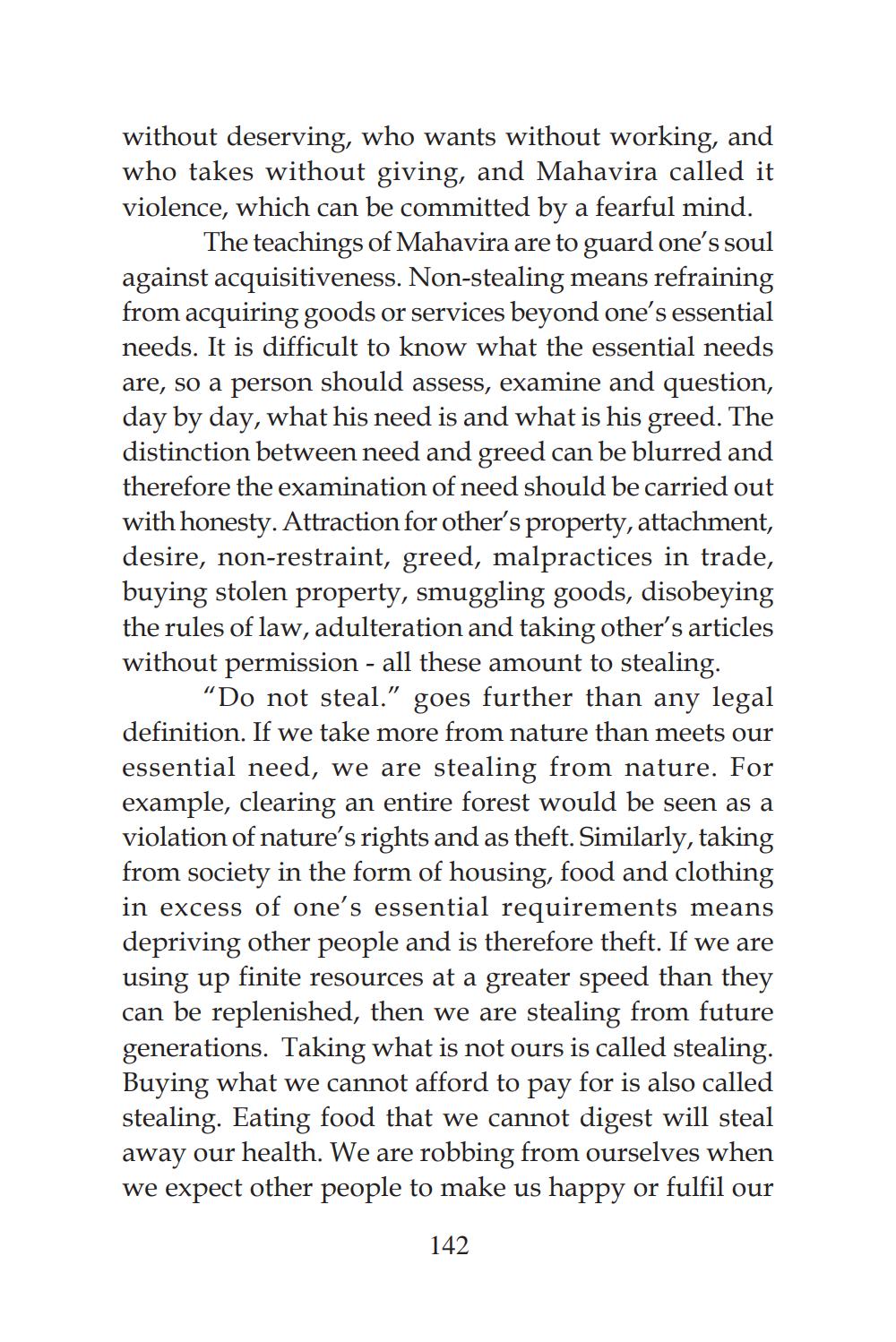________________
without deserving, who wants without working, and who takes without giving, and Mahavira called it violence, which can be committed by a fearful mind.
The teachings of Mahavira are to guard one's soul against acquisitiveness. Non-stealing means refraining from acquiring goods or services beyond one's essential needs. It is difficult to know what the essential needs are, so a person should assess, examine and question, day by day, what his need is and what is his greed. The distinction between need and greed can be blurred and therefore the examination of need should be carried out with honesty. Attraction for other's property, attachment, desire, non-restraint, greed, malpractices in trade, buying stolen property, smuggling goods, disobeying the rules of law, adulteration and taking other's articles without permission - all these amount to stealing.
“Do not steal.” goes further than any legal definition. If we take more from nature than meets our essential need, we are stealing from nature. For example, clearing an entire forest would be seen as a violation of nature's rights and as theft. Similarly, taking from society in the form of housing, food and clothing in excess of one's essential requirements means depriving other people and is therefore theft. If we are using up finite resources at a greater speed than they can be replenished, then we are stealing from future generations. Taking what is not ours is called stealing. Buying what we cannot afford to pay for is also called stealing. Eating food that we cannot digest will steal away our health. We are robbing from ourselves when we expect other people to make us happy or fulfil our
142




